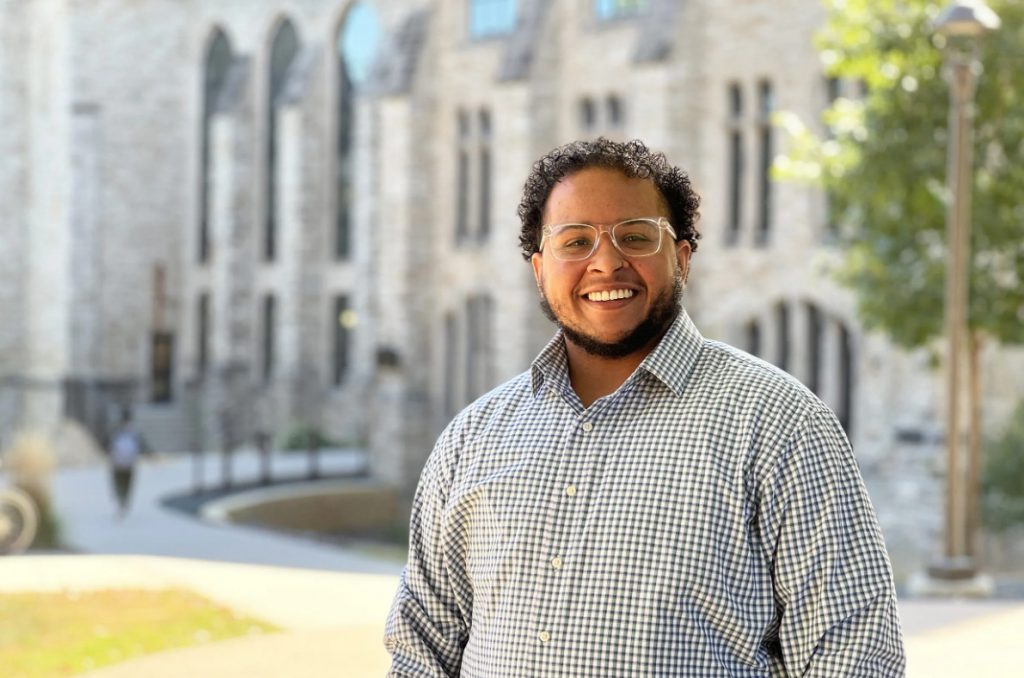Recent and Upcoming History Faculty Publications
Dr. Earls




Love in the Lav: A Social Biography of Same Sex Desire in Ireland 1922-1972
Dive into a history of sexuality, masculinity, and state-building through the reconstructed lives of men and boys in Dublin’s same-sex desiring world from 1922 to 1972 in Love in the Lav: A Social Biography of Same Sex Desire in Ireland 1922-1972. Few of Ireland’s same-sex desiring men left records of their lives or love. Through seven chapter-long social biographical case studies, Love in the Lav reveals how the structures governing male same-sex desire in Ireland played out on the bodies of three groups: the men who desired men; the teen boys who sold sex to men; and the guards who policed them. While commemorating the lives ruined by state-enforced homophobia, Earls’ monograph argues that the persecution of same-sex desiring men was central to Irish postcolonial state-building.
Spiritualism’s Place: Reformers, Seekers, and Seances in Lily Dale
A popular feminist history that features all the autobiographical snippets, pop culture references, and intelligent yet cheeky historical interpretations that Dig: A History podcast listeners have come to expect, this time focused on Lily Dale, New York.
Dig: A History Podcast
Dig: A History Podcast is a narrative-driven, open access, and accessible digital history project bridging the worlds of popular and academic history with an explicitly feminist perspective. Along with Dr. Earls, its producers consist of four women historians — all professors!
Dr. Hahn




KYMN College on the Radio with guest Professor Steve Hahn (August 27, 2025)
Host Joe Moravchik talks with St. Olaf College Distinguished Professor of History Steve Hahn about piracy in colonial North America and the Caribbean, the pardoning of over 200 pirates at this time, and much more from his book A Pirate’s Life No More: The Pardoned Pirates of the Bahamas.
A Pirate’s Life No More
Explore the lives of the pardoned 209 mariners accused of piracy in 1718 by the British crown. The book reclaims their humanity, connects the story of piracy at sea with the land-based communities that sometimes supported it, and illuminates the entangled histories of far-flung places in the Atlantic world. This study reveals that, for most individuals, forays into piracy were fleeting and opportunistic. Moreover, class, age, and regional divisions beset the pirate community, thereby precluding adherence to any single ideology justifying their actions. Hahn sheds new light on the ordinary activities in which the sailors were engaged when not involved in piracy and explores how they coped in the Bahamas and elsewhere after being pardoned. What emerges in this collective biography, then, are pirates who were mariners—of course—but also husbands, fathers, parishioners, and property owners.
Dr. Howe




Ancient Macedonians in the Greek and Roman Sources
The essays in this collection show how classical Greek, Hellenistic and Roman authors reinterpreted, sometimes misinterpreted, information on ancient Macedonians to serve their own literary and political aims. Although Roman ideas pervade the historiographical tradition, this volume shows that the manipulation of ancient Macedonian history largely occurred much earlier. It reflected the complicated dynastic politics of the Argead royal house, the efforts of Alexander himself to redefine Macedonian kingship, and the competing strategies of the Successors to claim his legacy. Facing the complexity of the source tradition about the ancient Macedonians yields a richer and more balanced reflection of both the history and the historiography of this important and controversial people.
A Companion to Ancient Agriculture
Overview the history and development of agriculture in the ancient world. Focusing primarily on the Near East and Mediterranean regions, this unique text explores the cultivation of the soil and rearing of animals through centuries of human civilization—from the Neolithic beginnings of agriculture to Late Antiquity. It presents a multidisciplinary examination of the agricultural methods and influences that have enabled humans to survive and prosper, and it contains essays on a range of topics that include economic-political, anthropological, zooarchaeological, ethnobotanical, and archaeobotanical investigation of ancient agriculture.
Ptolemy I Soter
As the founder of the longest-lasting of all the Hellenistic kingdoms, not only was Ptolemy I an able soldier and ruler, he was also a historian and, in Egyptian eyes, a living god. His own inclination and experience facilitated continuous acts of self-creation in a variety of forms, whether literary, dynastic, artistic, or political. The chapters in this book examine the many ways in which Alexander the Great’s most successful Successor consciously made his own legacy.
Successors to Alexander the Great – coming November 2025!
There is no single text which collects the historical sources for the period from the death of Alexander the Great’s to the end of the Wars of the Successors in 280 BCE. This period is notoriously difficult to research and understand, mainly because of multi-lingual nature of the historical documents which chronicle it. The Successors to Alexander the Great collects these relevant documents, which include classical Greek and Latin material, Babylonian Chronicles, Egyptian Royal and Priestly Decrees, and epigraphic dedications into one place for the first time. The book represents “one stop shopping” for scholars, students, and interested amateur historians alike.
Dr. Iddrisu
A Study in Evil: The Slave Trade in Africa
This paper examines the African slave trade across the Atlantic that lasted 400 years and led to the forcible removal of about 12.5 million people from Africa, south of the Sahara. in light of the notion that evil of whatever form is a menace to our very existence and a rupture of the very essence of hope. It will focus on the nature, development, and growth of the African/European Slave Trade, as it interrogates issues such as: if evil is coterminous with human cruelty, then the slave trade was the apogee of human evil and avarice; the notion of slavers saving the enslaved from themselves; and providing an avenue for conversion into Abrahamic religions. The essay will also be interested in how slavers—European and Africans alike—rationalized slavery and how the enslaved and onlookers responded to the spectacle of enslavement.
African Religion
This paper discusses how Africans have always called upon God, with different names in multiple situations, be it in times of joy or sorrow, or in anticipation of either of the two. But European missionaries and travelers were quick to deny the significant place of religion in African lives while arguing that Africans had no knowledge of God. There is enough scholarship now to demonstrate that through observation and interpretation of “ideas” and “forms,” “received” or “revealed,” Africans have expressed appreciation of their environment through proverbs, folktales, oral tradition, ethics and mores, dances, liturgies, and shrines. These are interpreted to better (i) understand the intentions of the outer world, (ii) find solutions to nagging issues, (iii) request favors, and most often (iv) petition the outer world to influence events so as to reverse known outcomes. Traditional African religion is thus not focused on the afterlife, as in Islam or Christianity. The concern is the material world and the well-being of humanity.
Salafism between purism and politicking
The dynamics of Salafi activism in African settings have gained attention in recent years. In the light of the regional spread of jihadist militancy, Salafi-jihadist groups such as Boko Haram and al-Shabaab have made international headlines. At the same time, Salafi groups and activists across the region have not shied away from ‘playing politics’ and engaging with secular elites and political parties. What explains this Salafi involvement in secular party politics? This article addresses this question based on a case study of the Ghanaian Anbariya movement, an influential Islamic group that was created by the eminent cleric Afa Ajura in Dagbon in the 1950s and gradually evolved into a major pillar of homegrown Ghanaian Salafism. Identifying the Anbariya as a reformist group in the sphere of political Salafism, we contend that the movement’s sustained involvement in the political process has been inextricably linked with a protracted chieftaincy rivalry pitting against each other the Abudu and Andani royal gates of Dagbon. As we explore the Anbariya’s involvement in this conflict and in Ghanaian party politics, we highlight the potential of communal cleavages for shaping the political preferences of religious actors.
Reflections on Continued Islamic Renewal in Ghana
This article interrogates the long history of continued Islamic renewal in the north of Ghana that privileges continuous reinterpretation of the Islamic ideal. It contextualizes three approaches at renewal: (a) the non-pacifist approach of Mahdi Musa, and (b) the pacifist jihad of al-Hajj Umar Abi Bakr of Kete-Krachi (1850–1934), both of which anticipated (c) the activities of Afa Ajura from the 1950s. But then, as significant as Alhaji Yusuf Soalihu Afa Ajura is in the dynamics of religious change in mid-twentieth-century Ghana, research on Afa Ajura is still embryonic. The article thus examines the poems of Afa Ajura (recently made available) and his da’wa activities in contesting Niasse Tijaniyya, the maltreatment of women, and his insistence on the common good, the sum of which often led to open conflagrations and turned Afa Ajura into a religious phenomenon. The poems represent as much of Afa Ajura’s patterns of thought as those of his followers and serve as a vehicle for popularizing their worldview. The paper concludes that the claim to legitimacy at the level of the faithful is not restricted to abusive denunciations but an interplay of social and political sensibilities.
Dr. Janak
Recipient of the 2025 Faculty Social Justice Award


The annual Social Justice Award recognizes the work of faculty members in bringing needed change to the college and demonstrates St. Olaf’s commitment to developing a more inclusive environment that will better foster a sense of belonging within the campus community. In accepting his award, Janak delivered a public lecture titled Cultivating Solidarity: Living Our Values Amid Ongoing Crisis. You can listen to Janak’s speech here.
Performing Abolition in the Hold: Gender-Responsive Prisons, Black Trans Subjectivities, and the Possibility of Abolitionist Prison Education
Finding Pride: Teaching Trans History in Secondary Social Studies
The authors share their experiences teaching trans history and offer an interactive lesson that highlights trans historical figures in the United States
(Trans)gendering Abolition: Black Trans Geographies, Art, and the Problem of Visibility
Through a close reading of texts, including Janet Mock’s Redefining Realness, Cheryl Dunye’s Stranger Inside, Jac Gares’s Free CeCe!, and songs by Jay-Marie Hill, this article asserts that these works constitute an intellectual archive of Black trans geographies. These geographies challenge the notion of carcerality by offering abolitionist visions of communal care and connectivity. By understanding the role of art in the proliferation of abolitionist struggle, we can appreciate abolition as a gender struggle and encounter more nuanced depictions of Black trans life.
Cultivating Solidarity from the Inside-Out
This text unearths how a pen-pal relationship transformed into a comprehensive abolitionist community. This case study provides an example of how abolitionists are grappling with the need to support the material needs of marginalised communities while still building otherwise possible worlds separate from a failing welfare state. Mutual aid projects, like the one formed by the supporters of Black Communist trans prisoner Alyssa V. Hope’s legal efforts and writings, showcase that otherwise possible worlds are not only possible, but they are being created right now before us.
Abolition is Here
Janak constructs a world in which prisons and police become unthinkable, and community care is inevitable. Building on the transnational organizing work of scholar-organizers such as Ruth Wilson Gilmore, Kelli Gillespie, and Vanessa Thompson, this work hopes to break open the imaginative limitations of the carceral state and imagine the otherwise possible. What would it look like to take seriously the project of P.I.C. abolition as an already unfolding possibility? “Abolition is Here” hopes to find out.
You must be logged in to post a comment.